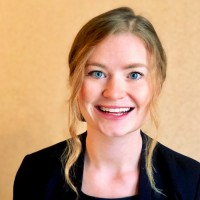WSIS Action Line C7 E-environment: Milestones, challenges and future directions
ITU, WMO, UNEP
Session 495
The WSIS Geneva Plan of Action defined three goals for Action Line C7, e-environment:
1) Use and promote ICTs as an instrument for environmental protection and the sustainable use of natural resources;
2) Initiate actions and implement projects and programs for sustainable production and consumption and the environmentally safe disposal and recycling of discarded hardware and components used in ICTs; and
3) Establish monitoring systems, using ICTs, to forecast and monitor the impact of natural and man-made disasters, particularly in developing countries, LDCs and small economies.
The session will offer an update on the key milestones that have been achieved towards the achievement of these goals and offer a perspective on key challenges and future directions. The session will also offer an opportunity for an inter-active exchange with stakeholders on key priorities for 2025 and beyond.

Noémie Pralat is an E-waste Policy Advisor in the Telecommunication Development Bureau of the International Telecommunication Union. Her work focuses on creating a circular economy for electronics and greening digital transformation.

Golestan (Sally) Radwan (B.Sc., MBA, M.Sc.) is a Computer Scientist with expertise in AI and emerging technologies. Prior to UNEP, Sally served as Advisor to the Egyptian Minister of ICT, where she led the development and implementation of Egypt’s national AI strategy. During this time, she served as an expert and delegate of Egypt to several international organizations working on AI Policy and Regulation including UNESCO, WIPO, ITU, and OECD. She also championed and led two working groups within the African Union and League of Arab States to unify regional efforts around Responsible AI. Sally previously held several executive positions in the technology industry over 17 years, working in Germany, Austria, the UK and the US for companies including Novell GmbH, Avaya Inc. and NTT Data Europe. She earned a B.Sc. in Computer Engineering from Cairo University and an MBA from London Business School, as well as an MSc in Clinical Engineering and Healthcare Technology Management from City University of London. She is currently finalizing her PhD thesis, focusing on AI explainability and its ethical considerations in metagenomics at the Royal Holloway University of London.

Claire Ransom is an assistant scientific officer in the Climate Monitoring and Policy division of the World Meteorological Organization, working to improve science communication and facilitate understanding of the interconnections between climate change and sustainable development. In addition to her work on the Sustainable Development Goals, she assists with the production and dissemination of the annual global and regional State of the Climate reports.
Ms. Ransom holds her master’s degree in Development Studies from the Graduate Institute of International and Development Studies in Geneva, Switzerland.
-
 C7. ICT applications: benefits in all aspects of life — E-environment
C7. ICT applications: benefits in all aspects of life — E-environment
-
 Goal 6: Ensure access to water and sanitation for all
Goal 6: Ensure access to water and sanitation for all
-
 Goal 7: Ensure access to affordable, reliable, sustainable and modern energy for all
Goal 7: Ensure access to affordable, reliable, sustainable and modern energy for all
-
 Goal 9: Build resilient infrastructure, promote sustainable industrialization and foster innovation
Goal 9: Build resilient infrastructure, promote sustainable industrialization and foster innovation
-
 Goal 11: Make cities inclusive, safe, resilient and sustainable
Goal 11: Make cities inclusive, safe, resilient and sustainable
-
 Goal 12: Ensure sustainable consumption and production patterns
Goal 12: Ensure sustainable consumption and production patterns
-
 Goal 13: Take urgent action to combat climate change and its impacts
Goal 13: Take urgent action to combat climate change and its impacts
-
 Goal 15: Sustainably manage forests, combat desertification, halt and reverse land degradation, halt biodiversity loss
Goal 15: Sustainably manage forests, combat desertification, halt and reverse land degradation, halt biodiversity loss